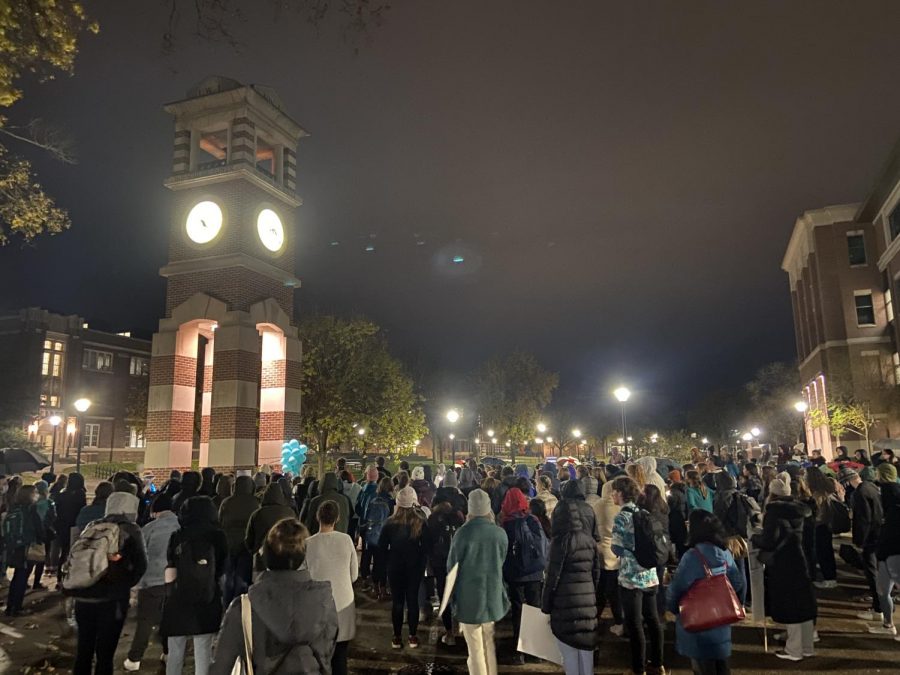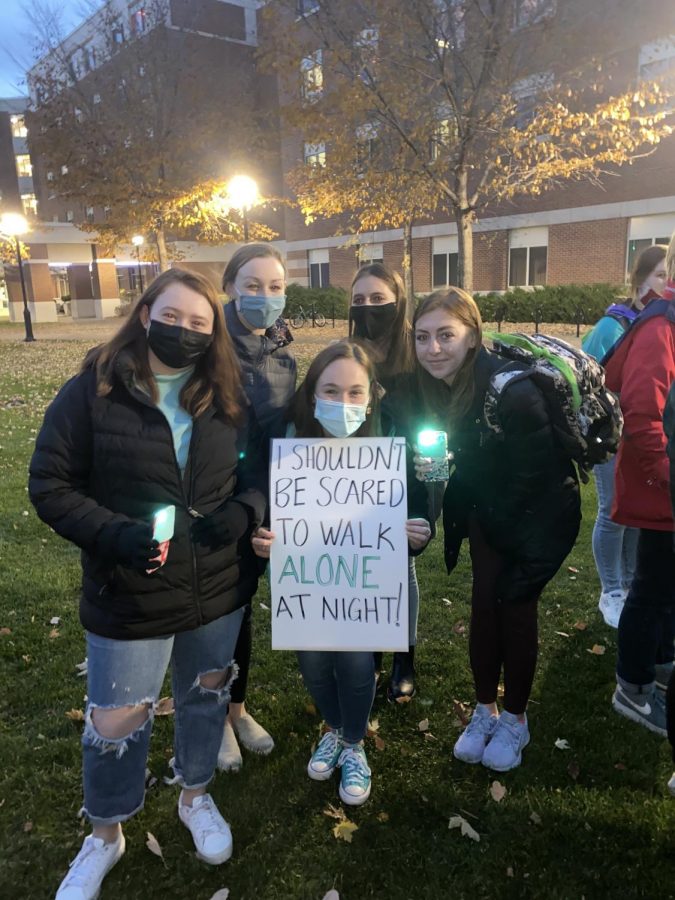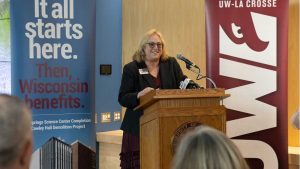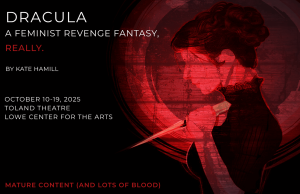Photo Series: UWL students march around campus to show support for survivors
November 11, 2021
Content Warning: Mention of Sexual Assault and Abuse
On Nov. 10, 2021, students at the University of Wisconsin-La Crosse gathered outside Hoeschler Clock Tower in order to show support for victims of sexual violence and to protest the administration’s handling of sexual violence on campus.
UWL students Issy Beach and Jessica Barber led the protest along with the help of Professor Keely Rees and students in their class on sexual health promotion. In addition to their contributions, many groups and individuals on campus helped organize the protest including violence prevention specialist Blythe McConaughey and the Violence Prevention Office, student wellness coordinator Gabrielle Smartt and the Peer Health Advocates, as well as Eta Sigma Gamma members.
Some of the other key contributors that made this protest possible include:
Health Education & Health Promotion, Wellness and Health Advocacy, Pride Center, Rainbow Unity, College Feminists, Counseling and Testing Center, Center for Transformative Justice, Race, Gender and Sexuality Studies, University Police Department, Student Association, and Student Support Services.
Students began at the clock tower and walked campus while saying “No means no” and carrying signs with a variety of sayings, one reading,“I shouldn’t be scared to walk alone at night”, as well as many others including, “I don’t want a rape whistle, I want change.”
When discussing what prompted this protest, Barber said, “We came in [to sexual health promotion class on] the Tuesday after we got the email [regarding sexual violence on campus], and we were all very frustrated with the content in the email, the email itself, and that nothing was being done. We thought we needed to take initiative as a sexual health class, to do something for students in need of resources.”
Beach had similar thoughts. “Initially, a lot of us felt that email that was sent out to students was not as comprehensive as it could have been. We all thought that a lot could have changed in regard to [sending] messages to students and how we speak to our students about [sexual violence],” they said.
According to Beach and Barber, the class worked together with other resources on campus to organize the protest. These discussions, Beach said, “evolved into the idea of letting students speak for themselves.”
After the walk around campus concluded, students gathered around the clock tower to provide space for people to share their stories with others. Some shared statements like “I believe you” and some shared personal stories of what happened to them in their lives and childhood. Students cheered for those who spoke and said statements like, “We love you!”, “We support you!”, and “It wasn’t your fault.”
Chancellor Gow was not present at the protest, but did make a statement in regard to UWL’s response to sexual violence. “I know everyone here at UWL will agree when I say that our highest priority is the health and safety of our students, staff and faculty. We support and stand with survivors of sexual assault, and we remain firmly committed to creating an environment where all people are free from the threat of violence,” said Gow.
When asked whether administration had done an adequate job of handling sexual violence on campus Barber said, “I would say that there is room for improvement, I think that the only way we can improve upon what we have is by listening to students and taking advice from the public health department and other offices that have suggestions.”
Beach said there is a need for space for those who have stories to share. “I think first and foremost it’s about listening to people who have something to say. Then taking what they have to say and turning it into something real,” they said.
“A lot of people, I think, worry that with events like this nothing is going to happen afterwards and that our asks are too big, our needs are too big, our wants are too big, and they think that all it takes is the right perspective to make those changes actually happen. I think teaching people how to have that perspective in a comprehensive, intersectional way is the first and foremost place we have to start,” said Beach.
On moving forward, Beach said, “A lot of us, recently, are talking about encouraging and almost demanding comprehensive sex education, consent education, and legal education on these matters for incoming freshman during the modules they have to do after they have been accepted to UWL.”
Barber said there is a need for more resources on campus.”We know that counseling and testing is already so booked and so busy and I personally think that the only way that students can get the help they need is by having more resources available than just counseling and testing on campus.”
Barber also said in specific situations, “where information like this surfaces, there is a need for more space in services that students are requiring [like counseling and testing]. Teaching people, not just saying, ‘Here are the resources available to you’ but teaching them and giving them the confidence to use them is really important.”







